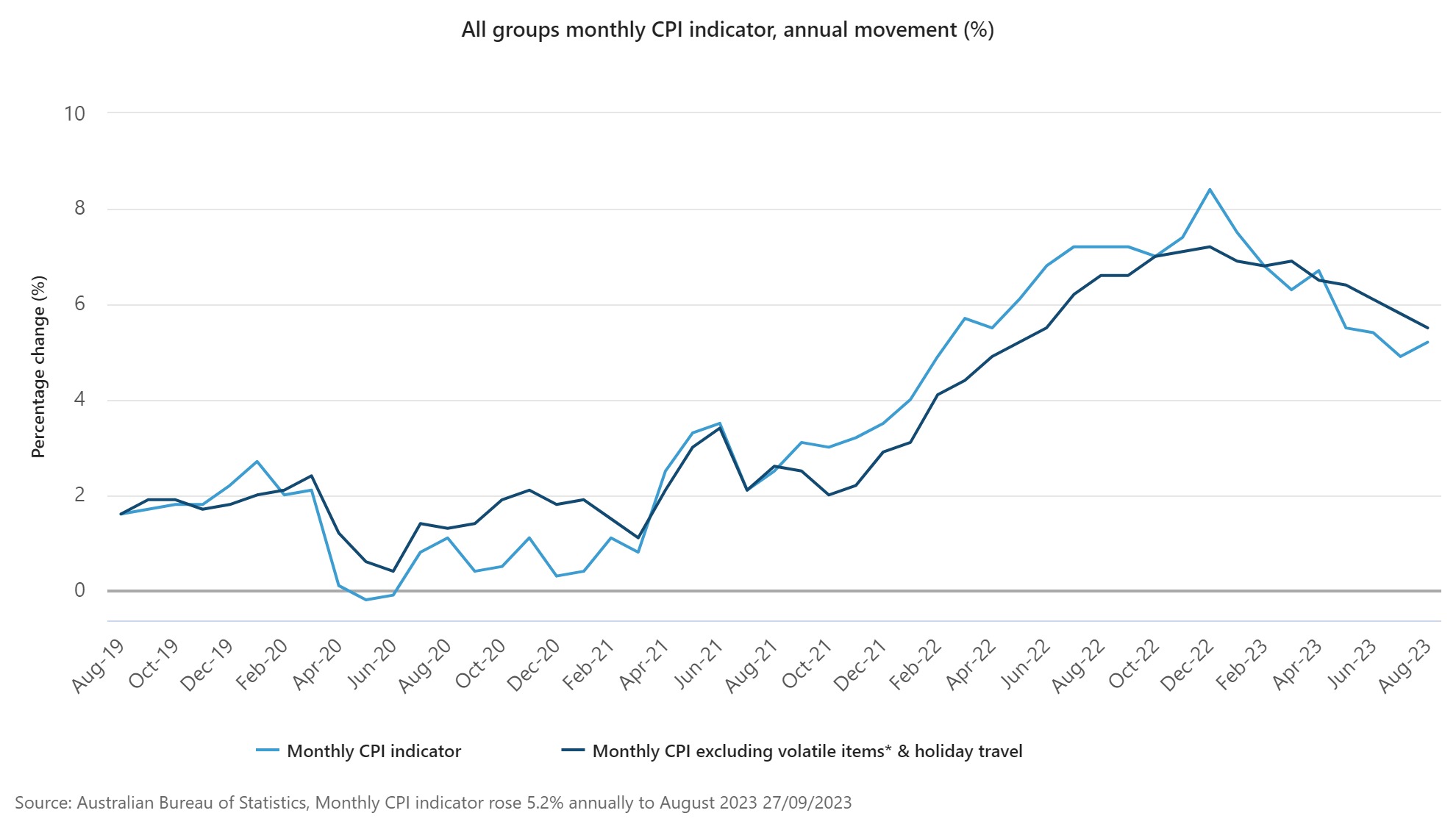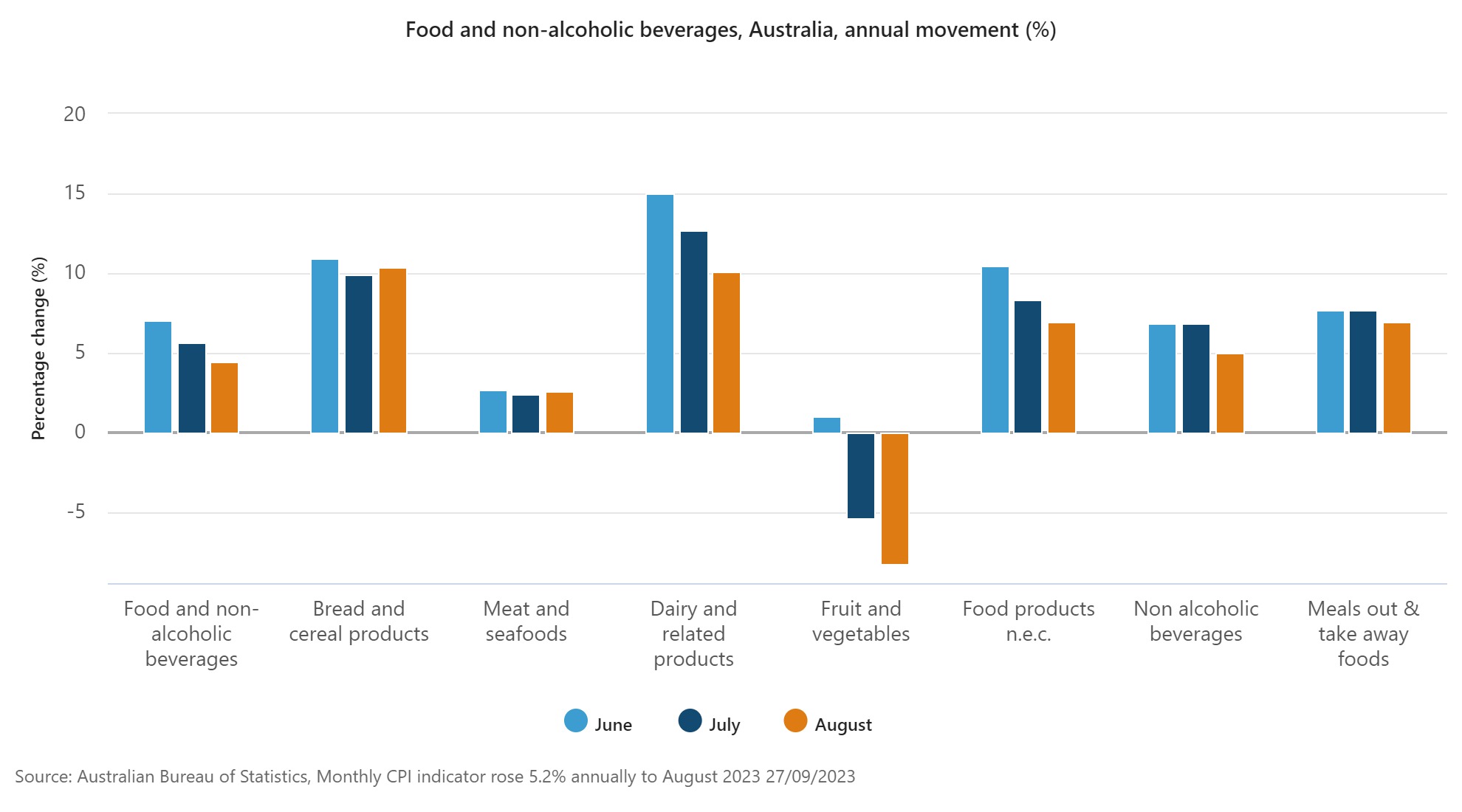Inflation rises as new RBA era beckons
The monthly Consumer Price Index (CPI) indicator rose 5.2% in the 12 months to August 2023, according to the latest data from the Australian Bureau of Statistics (ABS) – up from 4.9% in July but still well below the December peak of 8.4%.
However, the index, which lags by two months, is trending down when excluding volatile items such as fruit and vegetables, automotive fuel, and holiday travel.
ABS head of prices statistics Michelle Marquardt (pictured above) said it can be helpful to exclude these items from the headline CPI to provide a view of underlying inflation.
Housing, electricity, and fuel continue to drive inflation
The most significant contributors to the annual increase again were housing (+6.6%), transport (+7.4%), food and non-alcoholic beverages (+4.4%) and insurance and financial services (+8.8%).
The annual increase for housing of 6.6% was lower than the 7.3% increase in July.
New dwelling prices rose 4.8% which is the lowest annual rise since August 2021, as building material price increases continued to ease reflecting improved supply conditions. Rent prices rose 7.8% the 12 months to August, up from 7.6% in July, as the rental market remains tight.
Electricity prices rose 12.7% and Gas prices rose 12.9% in the 12 months to August reflecting increases in wholesale prices. Rebates from the Energy Bill Relief Fund introduced in most cities from July reduced the impact of electricity price increases for eligible households.
Automotive fuel prices rose 13.9% compared to 12 months ago. In monthly terms, automotive fuel prices rose 9.1% in August.

“The annual movement for automotive fuel remains volatile, partly reflecting price changes from 12 months ago when automotive fuel prices fell 11.5% in August 2022,” Marquardt said.
“Price rises this month, combined with base effects, have seen the annual movement for automotive fuel increase 13.9% in August, compared to a fall of 7.6% in July.”
Food and non-alcoholic beverages and holiday travel and accommodation
Food and non-alcoholic beverages rose 4.4% in the 12 months to August, down from the 5.6% annual increase in July and is the lowest annual increase since February 2022.
“Food inflation continues to ease, although differences remain across the food categories. Prices for Bread and cereal products and Dairy products have risen over 10% in the past 12 months, while Fruit and vegetable prices are 8.3% lower compared to 12 months ago due to improved growing conditions,” Marquardt said.

Holiday travel and accommodation prices rose 6.6% in the twelve months to August, up from 5.3% in July. Demand and prices remain elevated for both Domestic and International holiday travel and accommodation compared to twelve months ago.
In monthly terms, holiday travel and accommodation prices fell 3.9%, following a fall of 3.3% in July. No school holidays in August saw lower demand for domestic airfares and prices continued to ease for international airfares, following strong rises in June due to the start of the European summer tourist season.
Will the RBA cash rate pause or go up?
It’s the dawning of a new era with Michele Bullock attending her first RBA board meeting as Reserve Bank governor on Tuesday.
Although there is still no certain way to predict whether the RBA will increase the official cash rate or maintain the pause for a fourth consecutive month, the decision appears to overwhelmingly support the latter.
Underlying inflation continues to track down towards the central bank’s target band of 2%-3% and the changing of the guard between Bullock and Lowe could signal a prolonged bout of stability.
While the verdict is split on the cash rate’s peak, with ANZ, Westpac, and CBA say 4.10% is as high as interest rates will go while NAB predicts one more 25-basis-point hike, it’s unanimous among the big four that it won’t rise in October.
NAB forecasts the rate rise to hit by December 2023, bringing the cash rate up to 4.35%, until it slowly declines over next year.



